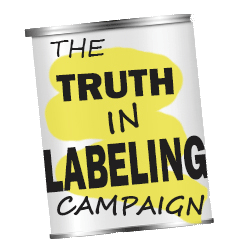“Everyone’s different.” How many times have you heard that when investigating the cause of your MSG-sensitivity? Perhaps it has to do with genetics. But others in your family aren’t affected. Why you?
Vulnerability
Everyone is sensitive to monosodium glutamate (MSG) and the manufactured free glutamic acid (MfG) in MSG if they get enough of it. To be toxic, it must either target glutamate receptors that have become weakened or vulnerable to its attack, or be in such strong concentrations that no glutamate receptor can resist it.
Vulnerability may be caused by:
- Brain cells that are unprotected by a blood-brain barrier (BBB)
- Preexisting brain damage or damage to the BBB, possibly from a stroke, a blow to the head, or previously consuming a large quantity of MfG at one sitting
- Preexisting damage done to cells that host glutamate receptors – making them vulnerable. In asthmatics, for example, certain cells in the lungs may have previously become vulnerable.
- Eating enough MfG at one sitting to trigger glutamate receptors on vulnerable cells; or eating enough to trigger glutamate receptors on cells that had not previously been damaged
- Accumulating stores of glutamate In the body
When you react to glutamate, you’re reacting to excess free glutamate. Of course, what is an excess for you will not necessarily be excess for me. While excess might be defined as “more than is needed for normal body function,” that doesn’t seem to be the case with glutamate-sensitivity. Rather, excess seems to be related to any amount of glutamate that will damage or kill your vulnerable glutamate receptors. (And as a side note, glutamate is classified as a non-essential amino acid, meaning that there is no need for a human to ingest glutamate as the body will produce what it needs from other available amino acids).
Understanding glutamate receptors
Glutamate receptors receive the glutamate sent to them by glutamate neurotransmitters. Although glutamic acid (glutamate) is essential to normal body function, when present in excess outside of intact protein it becomes excitotoxic, firing repeatedly and causing cell death and/or damage to targeted cells.
If cells are protected from excess glutamate, as the brain may be protected at least in part by a robust BBB, a little excess glutamate sent their way may not harm them. But if the BBB can’t do its job, targeted cells die. Outside of the brain and central nervous system, glutamate-receptors may have no protective shield from excitotoxins at all.
Relatively recently, researchers discovered glutamate-receptors outside the brain and central nervous system. These include, but are not limited to peripheral receptors in the stomach, heart, lungs, kidney, liver, immune system, spleen, and testis. And cells associated with each may be damaged or killed if glutamate sent from glutamate neurotransmitters reaches them. It’s possible that these peripheral receptors may have some type of protection system, but if so, scientists have not yet identified it.
Years ago we had thought it remarkable that glutamate-toxicity worked through the brain – since glutamate could produce an immediate migraine headache. Glutamate eaten – brain triggered – headache happened within seconds. Today we know that glutamate can move directly to peripheral receptors without traveling through the brain.
It appears that cells that host glutamate receptors can be damaged if exposed to a little glutamate, but not enough to kill them outright. There might be times when one ingests enough MfG to damage a cell, but not enough to kill it, or damage some of the cells in a group that control a particular function but not enough to knock out all of them. Ingest more glutamate on a second occasion, however, and those cells may die. Some MfG-sensitive people report that they can knowingly ingest MfG in a favorite food on one occasion without noticing a reaction, but react when that same food is consumed several days in a row.
What would make your glutamate-receptors more vulnerable?
One reason, of course, is damage to the BBB. We know that lack of blood-brain barrier development in the fetus and infant make them extremely vulnerable to exposure to MfG passed through their mothers’ diets.
Damage done to the BBBs of mature humans through use of drugs, from seizures, stroke, head trauma, hypoglycemia, hypertension, extreme physical stress, high fever, and the normal process of aging, can render them more vulnerable than others.
Individual sensitivity may also be related to the integrity of cells or groups of cells that control a particular function. A person who has experienced heart problems might very well be predisposed to having glutamate receptors in the heart vulnerable to insult by glutamate. A person with asthma, is likely predisposed to having an asthma attack after consuming glutamate.
Reports from consumers tell us that intensity or severity of reactions appear to be affected by alcohol ingestion and/or exercise just prior to, or immediately following MSG ingestion, and some women report variations in their reactions at different times in their menstrual cycles.
If you have questions or comments, we’d love to hear from you. And if you have hints for others on how to avoid exposure to MfG, send them along, too, we’ll put them up on Facebook. You can also reach us at questionsaboutmsg@gmail.com and follow us on Twitter @truthlabeling




